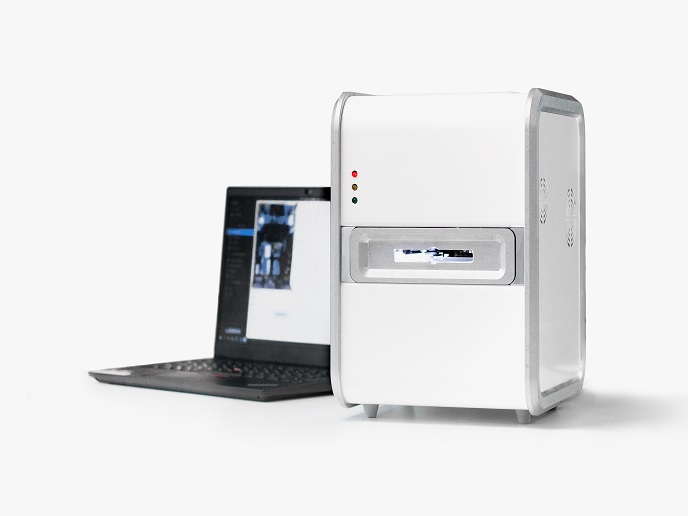
POCCardio
Advanced Point-of-Care Tool for Stratified Treatment in High Risk Cardiovascular Patients
The PoCCardio project is a 60 month Research and Innovation Action (RIA) co-funded by the European Commission through the Horizon Europe Framework Programme for Research and Innovation as part of the Personal Health Systems objective.
Myocardial infarction (MI) remains a major cause of morbidity and mortality in Europe and the United States. Despite available tools for risk stratification and the availability of a variety of drugs and treatment approaches to lower cardiovascular (CV) risk, the incidence of recurrent CV events remains high in subjects with previous MI. The PoCCardio partners are proposing a set of CV biomarkers that have repeatedly emerged as predictors of CV event risk, either alone, or even more convincingly in various combinations.
The PoCCardio project thus aims to promote personalised treatment of Cordio Vascular Diseases (CVD) by identification of ‘extremely high risk’ subjects using biomarkers and to explore the potential of multifactorial intensified risk factor treatment in lowering CV risk and recurrent events. The project will develop an innovative Lab-on-Chip (LoC) device that allows rapid and low-cost point-of-care (PoC) measurements of both proteomic biomarkers and genetic risk variants, and 2) validate accuracy, sensitivity, specificity and feasibility of the PoC device.
The PoCCardio device brings together biomarker measurement and profiling of genetic variations, and thus will be used to enhance risk stratification and to provide the affected individuals with personalised care. It also limits the amount of both expensive reagents and blood samples needed for the tests, and thus reduces both cost and patient’s pain and discomfort.
A PoC device, developed within the H2020 PoCOsteo project, will be further developed and tailored to provide a self-contained and portable method of analysing blood samples from patients at the treating sites. Disposable microfluidic cartridges will enable contamination-free sample collection via a user-friendly blood collection method (e.g., capillary) as well as in-device sample preparation overcoming the need for trained personnel and multi-step tests.
The clinical validation of the qualified biomarkers and the PoC tool itself, will be performed in a prospective, randomised multinational trial, including only existing and approved pharmaceuticals. The trial will provide the scientific foundation to support regulatory authorities regarding approval of companion diagnostics, and recommendations for the prescription of drugs, respectively.
Project data


Rationale
Myocardial infarction (MI) remains a major cause of morbidity and mortality in Europe and the United States. Despite available tools for risk stratification and the availability of a variety of drugs and treatment approaches to lower cardiovascular (CV) risk, the incidence of recurrent CV events remains high in subjects with previous MI. The Systematic Coronary Risk Evaluation (SCORE), which is currently implemented in the European guidelines for prevention of cardiovascular disease (CVD) allows clinicians to categorise individuals for their risk of CV death on a population level.
However, identification of individuals within the high-risk group that are at particularly high risk (i.e., “extremely high-risk”) to develop severe sequelae remain unresolved issues. Thus, efforts towards a more personalised medicine by identification of these “extremely high risk” subjects and administration of an intensified risk factor treatment are imperative to lower CV risk and recurrent events (2,3).
Personalised medicine as a concept relies on disease-specific biomarkers for the adjustment of treatments to individual patients. This approach to therapy has been pioneered in oncology with the advent of targeted drugs. Translating this concept to CVD holds great potential to improve clinical management, but also poses significant challenges as many therapeutics (such as statins) have a confirmed and potent effect on LDL-C.
Point-of-Care system overview
To overcome the important gaps in the clinical armamentarium of CVD management and identification of high-risk individuals who would best benefit from an intensified intervention and a low-cost accessible monitoring solution for the affected individuals, various technologies including molecular medicine, nanobiotechnology, microfluidics and biochemistry should come together.
If a biomarker-based identification of “extremely high risk” patients and subsequent treatment intensification was demonstrated to be successful, a major challenge would be its implementation in routine patient care.
The PoCCardio tool aims to solve this problem. The device brings together biomarker measurement and profiling of genetic variations, and thus will be used to enhance risk stratification and to provide the affected individuals with personalised care. It also limits the amount of both expensive reagents and blood samples needed for the tests, and thus reduces both cost and patient’s pain and discomfort.
In this regard, a bench top PoC device, developed within the framework of HORIZON 2020 (PoCOsteo), will be further developed, and tailored to provide a self-contained and portable method of analysing blood samples from patients at the treating sites.

PoC device, developed in the PoCOsteo project (c) Labman Automation
Technical features
The device will be able to measure qualified biomarkers (proteomic, lipidomic and genomic) to help identify, classify, and monitor patients at risk. The clinical validation of the qualified biomarkers considered here and the PoC tool will then be performed in a prospective, randomised multinational trial, including only existing and approved pharmaceuticals.
The proteomic sensor will test 10 biomarkers simultaneously. Sandwich assays will be employed due to the complexity of employing competitive type assays in multiplexed detection formats, as well as the low detection limits required. As an alternative to antibodies for the detection of the identified protein markers, the possibility of using aptamers will be pursued. Aptamers are artificial nucleic acids, selected through a process termed SELEX, and following SELEX can be facilely produced via chemical synthesis. For each of the identified targets to be detected on the protein sensor, aptamers have already been successfully generated showing that they can be used as targets.
The genomics sensor will perform multiplexed detection of polymorphisms, including the IL-6, NLRP-3, Apo A, Apo E and Chromosome 9 polymorphisms, which requires the detection and identification of specific single nucleotide polymorphisms. The methodology has already been demonstrated within PoCOsteo, where SNPs were detected directly in finger prick blood samples in just 15 minutes.
The PoC tool will be broadly based on technology developed by Labman during previous EU-financed projects but adapted to suit the newly developed microfluidic consumable. The concept for the device is to provide a single, portable, benchtop device that will actuate and read from the microfluidic consumables, or multiple permutations of, as required.
Expected Project Outcomes
The PoCCardio approach will help overcome the above-mentioned limitations and improve care and treatment efficacy in CVD patients through an advanced biomarker-driven personalised medicine through following project outcomes:
- PoC device for biomarker detection “PoCCardio-BM/GM”
- The successful deployment of 10 fully functional devices supported by training at each site for implementation in a clinical environment. The devices will include software and consumables
- POCT-Cardio-Val clinical study completed
- Sensitivity, specificity, turnaround time and robustness of the PoC-device in assessing the targeted biomarkers (proteomic and genomic) will be assessed in the general population
- POCT-BIO-MI clinical study with 1,836 patients completed
- A multi-centric clinical trial in 30-35 sites enrolling 1,836 participants to stratify MI patients into extremely high-risk and monitor their therapy response based on the PoCCardio-BM/GM assessment will be performed.
- PoCCardio additional data and biomarker analysis completed
- PoCCardio data will constitute a rich resource for complex computational analysis to explore correlations between primary and secondary outcome parameters to identify parameters with predictive power for outcome and therapy selection
In-JeT’s role in the project
In-JeT will be engaged in various project management roles such as Quality and Risk Management as well as Knowledge, IP and Innovation management.
In-JeT also has a leading role in management of the ethical aspects of the project and providing advice on how to manage patient involvement and communication in the clinical trials, and monitoring compliance with legal and ethical requirements.
Based on our vast experience in dissemination of research project results, In-JeT will be leading the work on project dissemination, communication, and exploitation planning. We are also responsible for developing and maintaining the projects’ website and social media platforms.
Further, In-JeT will participate in the market analysis and business planning as well as integrating of outcomes from a large bottom-up market study to be undertaken.
Partners
Funding
Co-funded by the European Commission Horizon Europe research and innovation programme.









